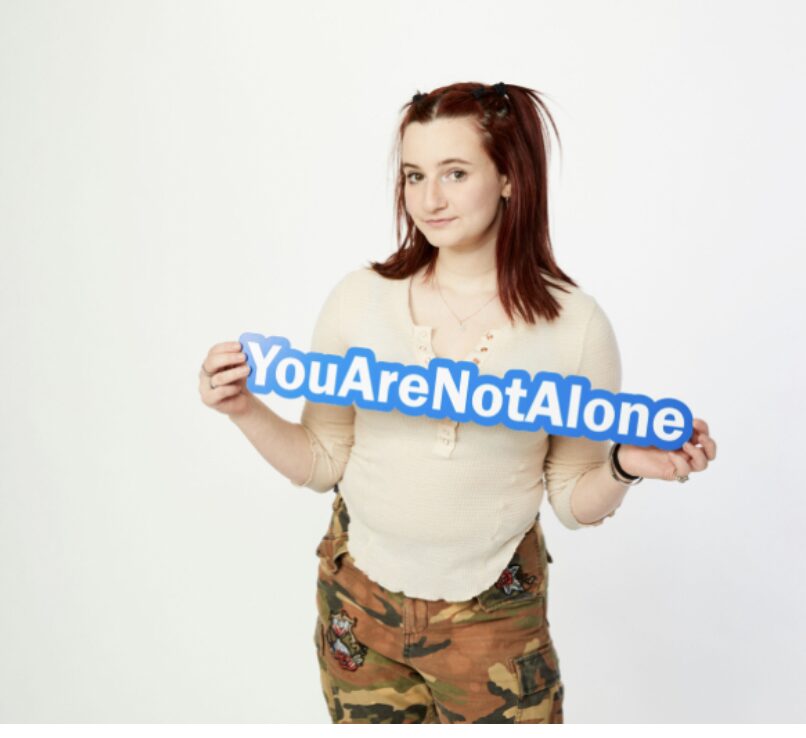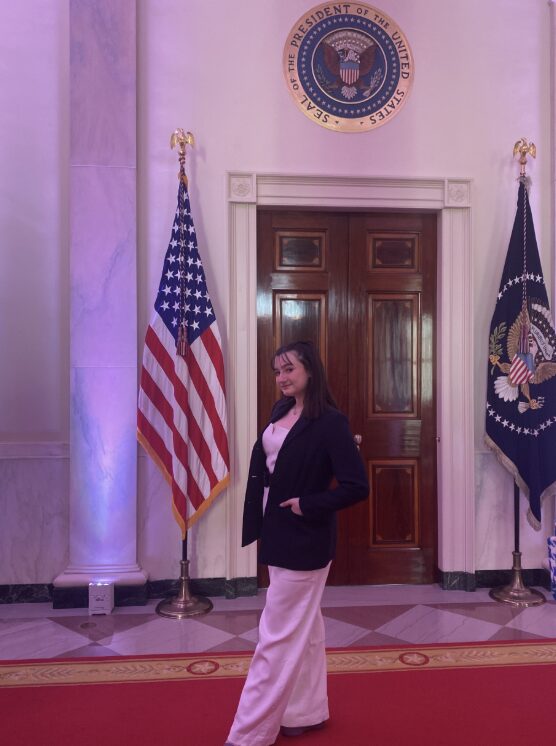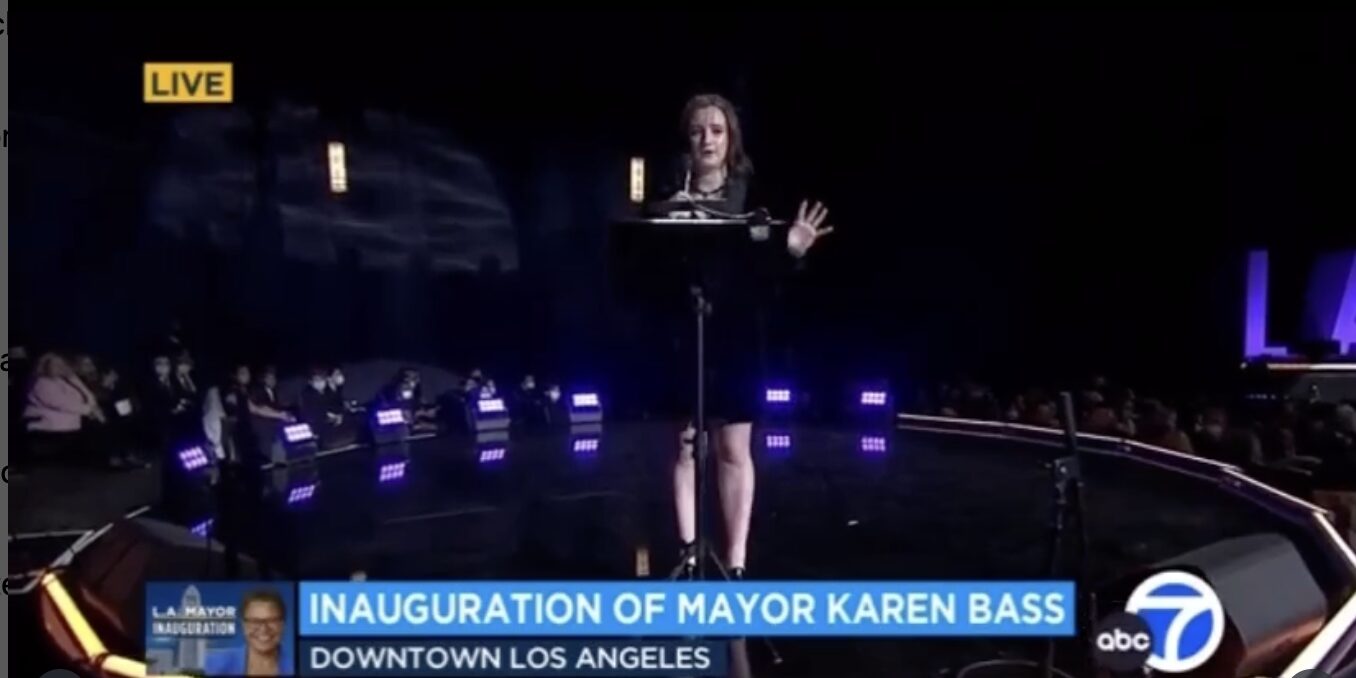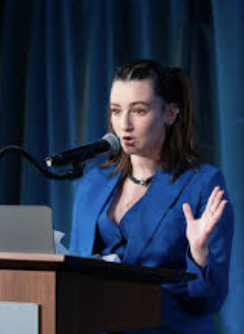We caught up with the brilliant and insightful Sophie Szew a few weeks ago and have shared our conversation below.
Sophie, we’re thrilled to have you sharing your thoughts and lessons with our community. So, for folks who are at a stage in their life or career where they are trying to be more resilient, can you share where you get your resilience from?
My generation’s resilience is rooted in our knowledge of the truth. Many youth who identify as mental health advocates are often told that sharing our story is a revolutionary act. We are encouraged to share our stories by narratives claiming that speaking up about our experiences with mental illness and mental health challenges dispel stigma, which in turn leads to better mental health outcomes for our community members. That is certainly how mental health advocacy was first framed for me; back when I first published poems about my experience with psychiatric institutionalization and eating disorders. I learned very quickly that while the narrative above endorsed by adults around me was done so with the good intentions of improving youth mental health; it is one that does not align with reality. While I have had the privilege of sharing my story and receiving praise and recognition, so many members of my generation face danger when they speak up about their experiences with mental illness. In fact, the rhetoric of mental illness is used as a tool for the pathologization and criminalization of people of color. The systemic harm caused by the labeling of individuals as mentally ill is a story that those same adults who tell us to speak up about our experiences often are not receptive to; as it means pointing out deeply rooted histories and ongoing realities of inequity rather than centering the individualizing language of destigmatization. It means considering radical change rather than small-scale behavioral shifts. Knowledge of the truth that these radical changes are needed is where my generation’s resilience comes from; and the power in our stories lies in their ability to move towards these changes.

Let’s take a small detour – maybe you can share a bit about yourself before we dive back into some of the other questions we had for you?
I share some of my insights about youth mental health on my column Truth from Today’s Youth, a platform intended to build intergenerational bridges between youth and those enacting programs, policies, and care initiatives to support youth mental health. Published through the website and quarterly publication Behavioral Health News, it brings insights from youth discourse directly to an audience of researchers, clinicians, policymakers, and caregivers–promoting a mental health policy and resource landscape rooted in kind, empathetic understandings of youth needs. It aims to uplift the voices of youth and lived-experience expertise from communities that are most harmed by systemic misalignment with their mental health needs. Past topics have included the use of social media in suicide prevention and harm reduction by LGBTQ+ youth, disability justice activism and accessibility online, and the connection between unjust algorithms and diagnostic criteria in maternal health, education, and youth mental health. Disseminating knowledge and writing and reflecting on youth mental health justice can be a powerful tool to build intergenerational bridges to work towards meeting youth needs, and I believe this knowledge must be rooted in community practice. Thus, I root my ideas in my work in the community health space. I have experience in LGBTQ+ community health education partnerships through Mount Sinai’s Office of Diversity and Inclusion, as well as in advising and co-creating community impact partnerships at organizations like the The White House and MTV’s Mental Health Youth Action Forum, the Born This Way Foundation, Mental Health America, the National Alliance for Mental Illness, Project Unloaded, and the LA County Department of Mental Health, and as the youngest advisor to the federal government through the Substance Abuse and Mental Health Services Administration (SAMHSA) National Advisory Council. As I explained when writing about youth resilience, we each play a role in communal healing, and the act of creating allows us to envision the healed world we seek to live in. Thus, I consider my artistic poetic practice to be deeply intertwined with my advocacy, and write and perform poems where I create new words and new worlds. I have performed spoken word storytelling at events like the inauguration of Los Angeles Mayor Karen Bass and during congressional testimony at both the state and federal level, and have poetic pieces published on platforms like the Santa Clara Review, i2i Zine, and the Boiler Magazine. As a public speaker, I often intertwine poetry into my speeches and presentations to uplift the role of art and performance as important forms of knowledge production and dissemination.

Looking back, what do you think were the three qualities, skills, or areas of knowledge that were most impactful in your journey? What advice do you have for folks who are early in their journey in terms of how they can best develop or improve on these?
As explained in previous answers, the embrace of creation–weather it be through connection and community building, art, identity creation and transformation, storytelling, or a mix of all of these–as a form of healing that blurs the lines between the personal and the collective has been one of the most important insights guiding my work. Similarly, the recognition of the transformative power of true learning as the fuel for this creation motivates me to connect with intergenerational partners and understand our collective vision of a more just world as a shared one that transcends time and location. Finally, I have learned that institutions that stand in the way of this vision operate on a constructed, unjust understanding of what is “normal” or “acceptable,” and thus the true creation of a more liberated world begins with challenging our relationship to such norms.

Okay, so before we go we always love to ask if you are looking for folks to partner or collaborate with?
I understand mental health justice must be an unrelenting collaborative effort; any view of mental health as an “individual problem” or as something that can be improved upon solely by addressing individual behaviors is an oppressive one. Thus, I seek to collaborate with anyone and everyone who is willing to frame healing as collective, and to challenge the normatively accepted understandings of mental health as both an individual issue and a force for the perpetuation of harmful hyper-individualization.
Contact Info:
- Website: https://www.allamericanspeakers.com/speakers/464405/Sophie-Szew
- Instagram: https://www.instagram.com/sophie_szew/?hl=en
- Linkedin: https://www.linkedin.com/in/sophie-szew-87aa5420a/
- Youtube: https://spectrumnews1.com/ca/southern-california/inside-the-issues/2023/05/25/social-media-and-children–why-youth-advocates-are-calling-for-accountability–#?fbclid=PAZXh0bgNhZW0CMTEAAafdSpotqeJHPYG0Z6eECMjf5psAgYQQ4isqBQn8fo9GQ8IwZOBHuZaJ1ge1jQ_aem_Z3k2xBP_LhwXqkmHmj86CQ
- Other: https://behavioralhealthnews.org/postauthors/sophie-szew/

so if you or someone you know deserves recognition please let us know here.




